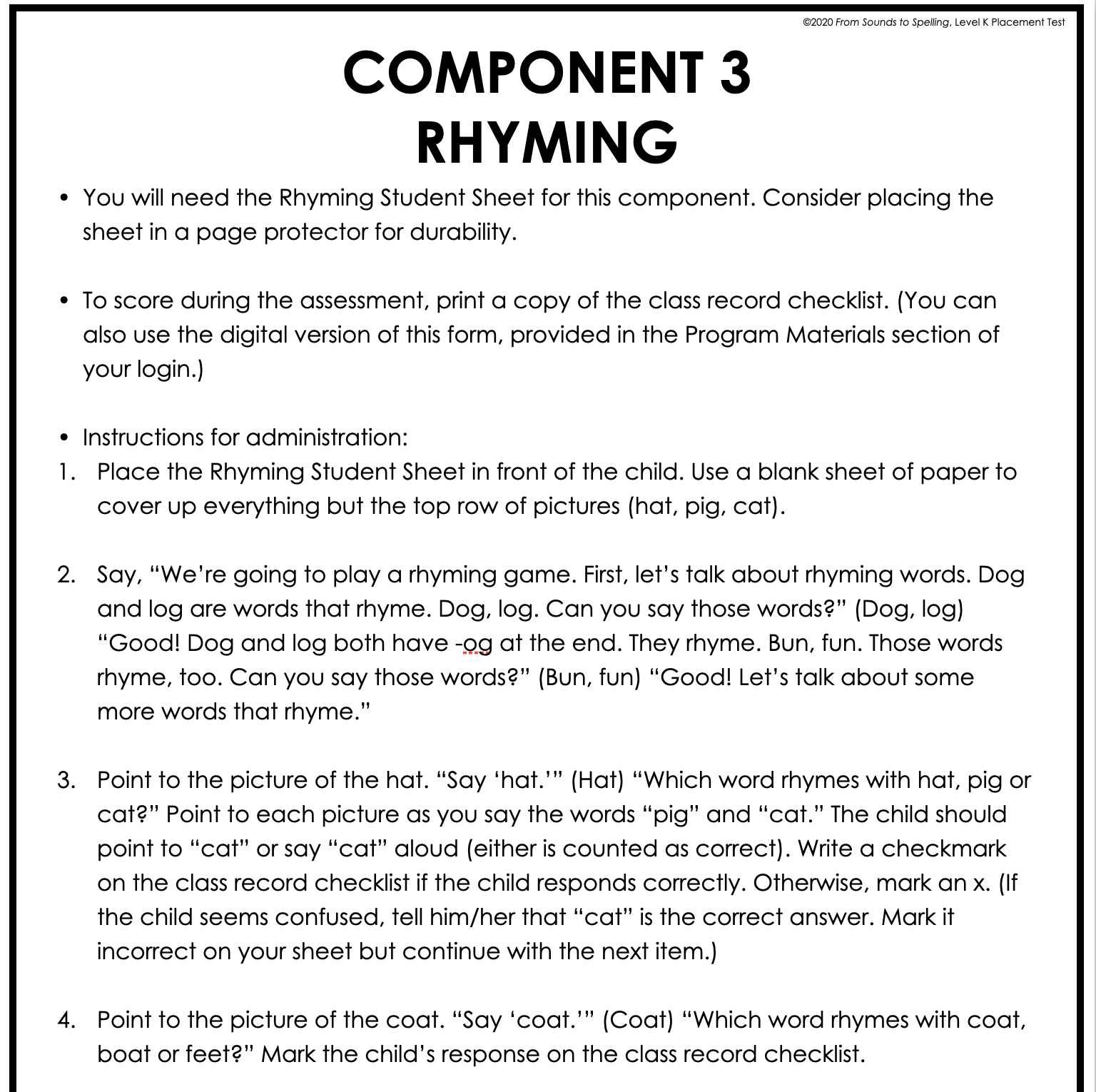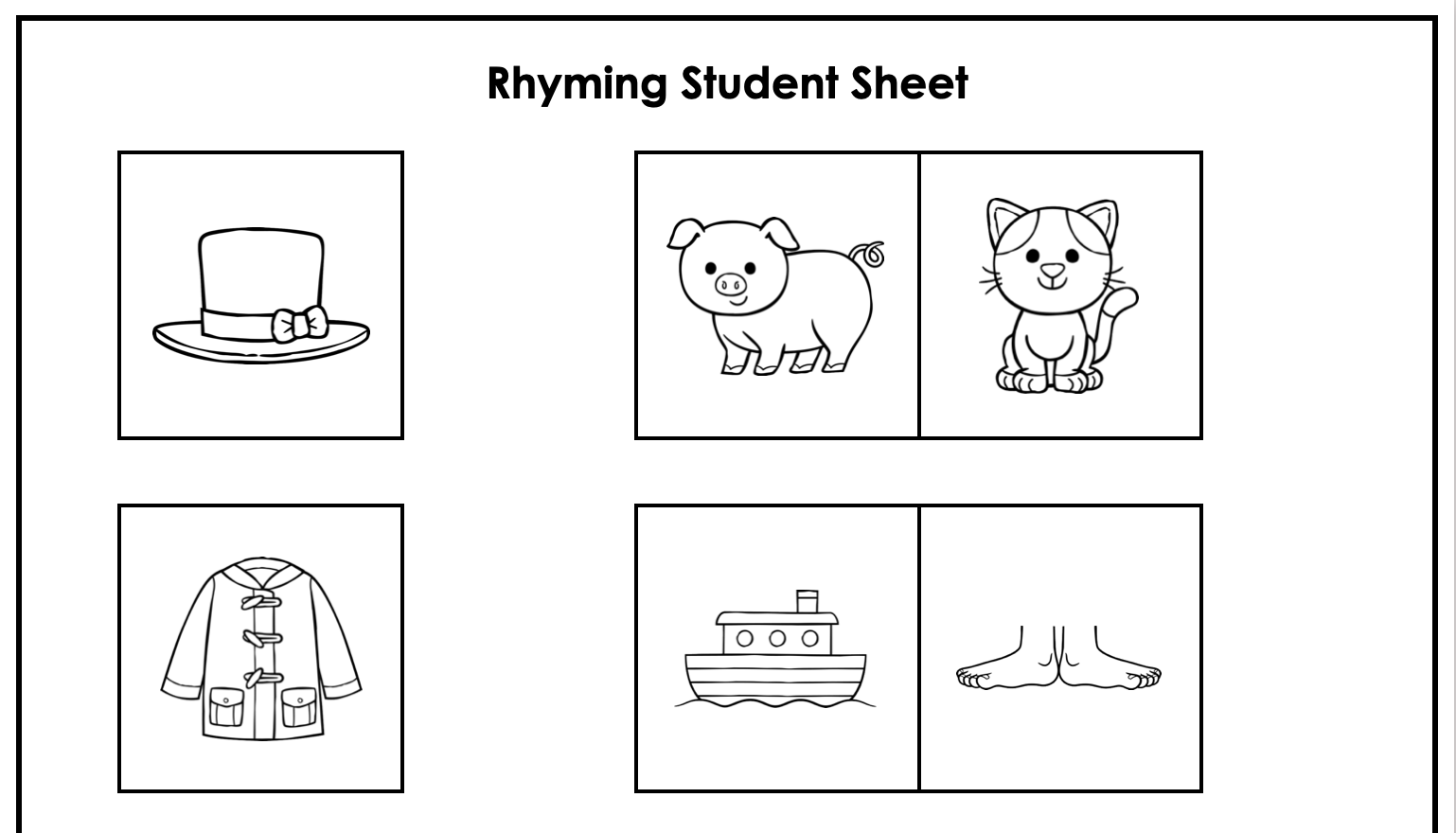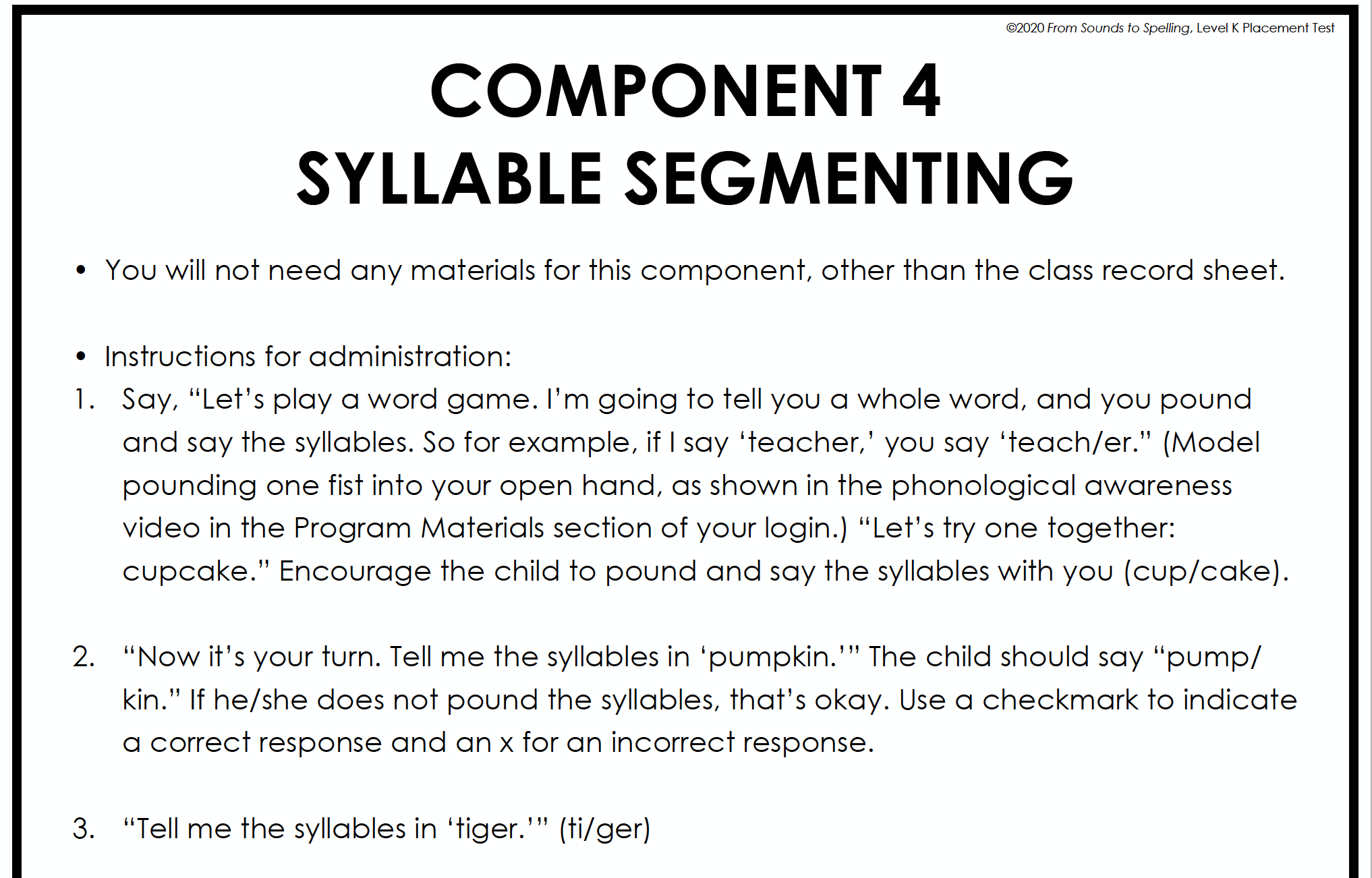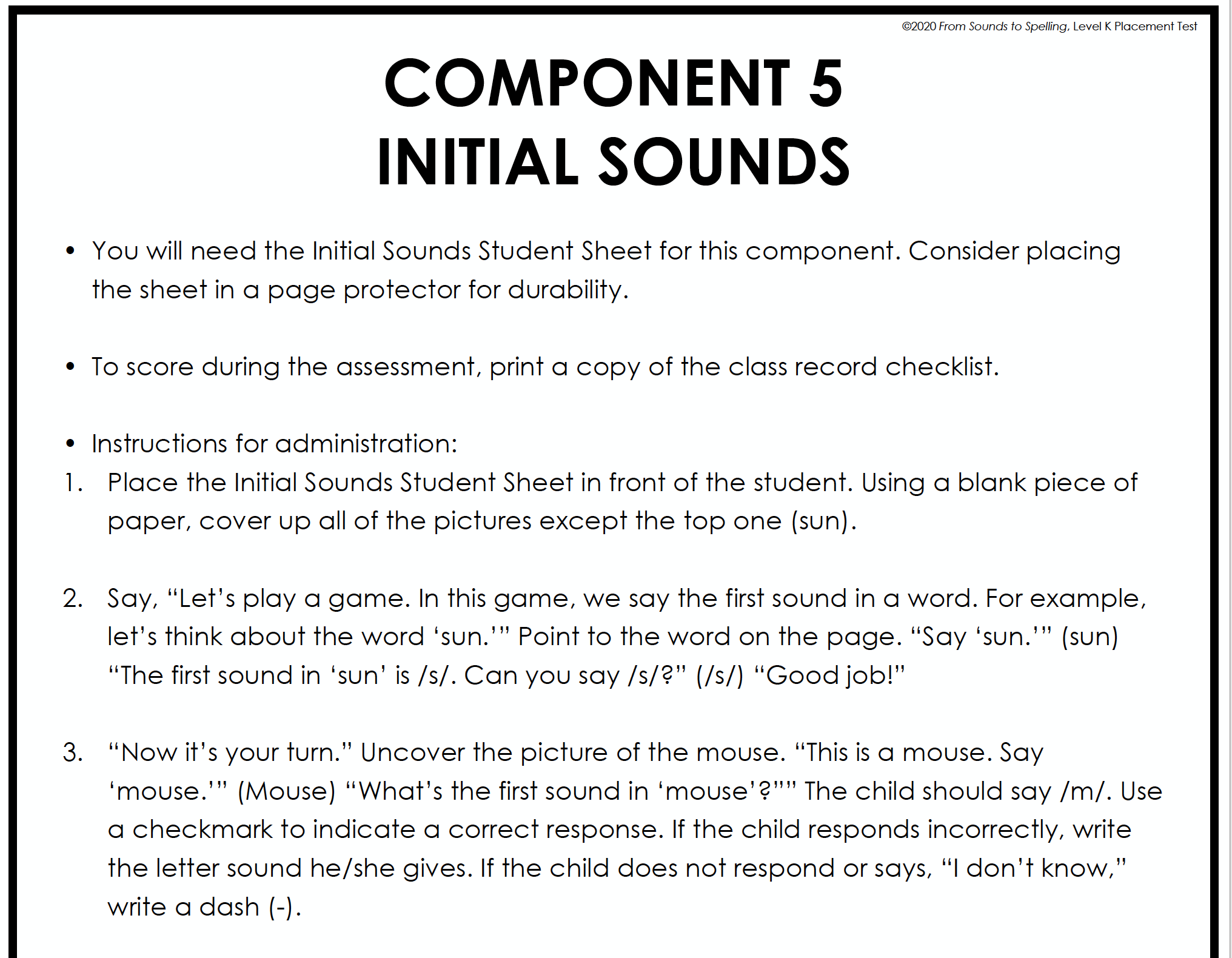
Assessments for Phonological Awareness
Looking for some assessments for phonological awareness?
First, let's start with the definition of this term!
Phonological awareness is a set of skills that are essential for children who are learning to read. Phonological awareness involves skills like:
- Sentence segmenting (orally breaking up a sentence into individual words, or counting the number of words in a sentence spoken aloud)
- Rhyming
- Blending and segmenting syllables
- Blending and segmenting phonemes (individual sounds in a word)
- Substituting phonemes (switching out a sound in a word for a different sound)
All phonological awareness activities are done without letters or print - these are listening and speaking activities.
Whether you're working with young students on beginning phonological awareness skills, or you're helping older, struggling readers (who often have phonological awareness deficiencies), understanding students' current ability levels is key. Otherwise, you won't know what phonological awareness skills to focus on.
Phonological awareness assessments are sometimes included in phonics programs or school benchmark assessments. You can also create your own.
Below are some examples of phonological awareness assessments from our phonics program, From Sounds to Spelling.
Example #1: Rhyming Assessment
The first image is a partial screenshot of the teacher directions; the second image is a partial screenshot of the sheet that students see during the phonological awareness assessment.


Example #2: Syllable Segmenting

Example #3: Initial Phoneme Isolation


Example #4: Phoneme Segmentation

These examples come from the placement tests for the Kindergarten and first grade levels of our phonics program, From Sounds to Spelling. The complete program includes phonological awareness assessments and daily activities for phonological awareness (as well as complete lesson plans and student materials for teaching phonics in K-2).
To download a free sample of this science-based phonics program, click here.




